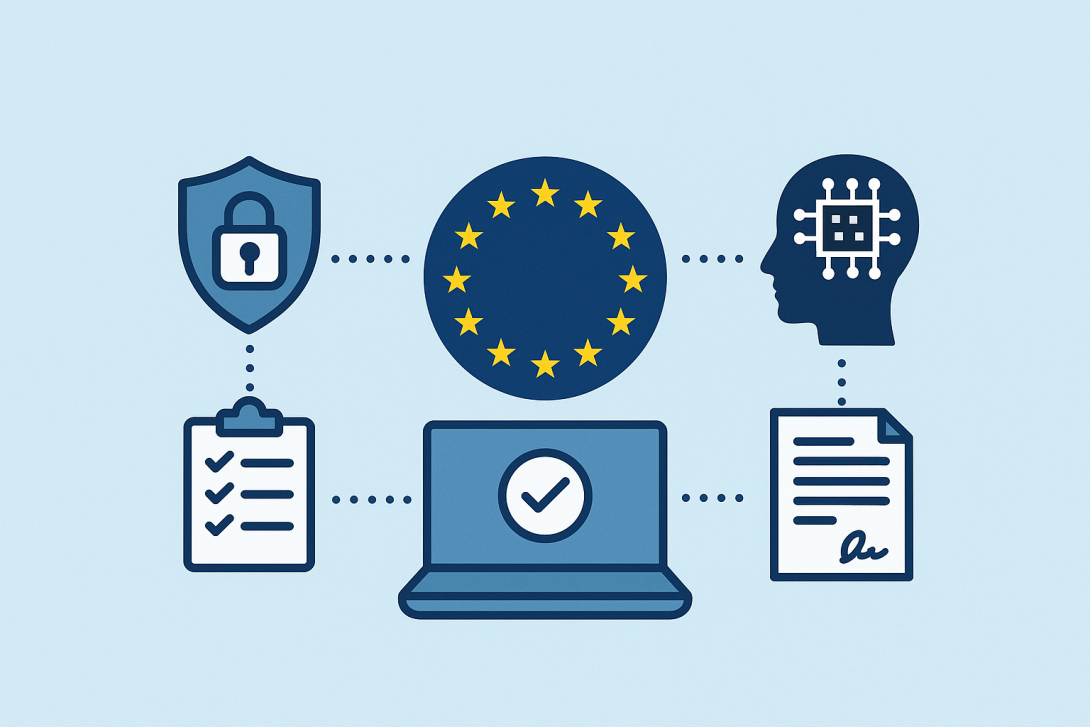TANGO: Key Recommendations for Standardisation

As the TANGO project is coming to an end, we are excited to share our experiences and thoughts on standardisation in TANGO and EU projects in general. While previous updates have highlighted technical innovations and collaborative efforts, this article focuses on how standardisation can shape and support the project’s long-term impact.
In TANGO, we are working in an evolving regulatory and technological landscape. Ensuring that our solutions remain interoperable, secure, and ethically grounded demands strategic alignment with existing and emerging standards. Below, we present a set of practical recommendations and strategies to guide standardisation activities across TANGO’s key technical areas.
1. Interoperability in Environments
Seamless interoperability across platforms and devices is essential. In multi-vendor, multi-domain environments, aligning with common standards ensures that systems can communicate and collaborate effectively.
TANGO Recommendation 1: Prioritise alignment with existing standards such as ETSI, and ecosystem driven standards like IDSA, GAIA-X, and FIWARE. Leverage these frameworks to ensure that communication and computing services can be integrated across different deployments.
Strategy: Engage with relevant SDOs (Standard Development Organisations) and support the development of open, standardised APIs for edge computing orchestration. This will ensure data and models can move securely between nodes. Encourage vendor-neutral interfaces to reduce integration friction and future-proof deployments.
2. Secure and Governed Data Exchange
Federated learning and distributed AI require robust data governance frameworks to operate across borders and organisations. Standardisation here underpins trust, security, and regulatory compliance.
TANGO Recommendation 2: Establish a standardised model for secure data sharing and federated model exchange, aligned with GDPR and, where necessary, military-grade security standards. Frameworks such as ISO/IEC 27001 for ISMS and ISO/IEC 23894 for AI risk management offer a strong foundation.
Strategy: Develop and adopt reusable data governance templates that outline permissions, accountability, and traceability. Propose modular certification schemes to evaluate data integrity and node trustworthiness in federated environments. Promote secure multi-tenant collaboration through standard protocols for anonymisation and secure aggregation.
3. Privacy and Resilience by Design
TANGO’s emphasis on edge AI must balance innovation with privacy and resilience. Embedding these principles into our architecture from the ground-up is crucial.
TANGO Recommendation 3: Integrate standardised privacy-preserving mechanisms such as differential privacy and secure enclave computing into edge AI workflows. Adopt cryptographic standards from ISO/IEC JTC 1/SC 27 to ensure data confidentiality even in hostile environments.
Strategy: Support the development of reference architecture showcasing privacy-by-design for federated edge AI. Document threat models and mitigation strategies aligned with ENISA guidelines. Foster interoperability with trusted execution environments (TEEs) and promote standard interfaces for remote attestation and enclave management.
4. Ethical and Explainable AI in High-Stakes Contexts
AI in security applications raises critical ethical questions. Clear standards can ensure transparency, fairness, and accountability, particularly in dynamic, high-risk deployments.
TANGO Recommendation 4: Advocate for adoption of emerging standards for ethical AI, including IEEE 7000 series (e.g., IEEE 7001 on transparency), and ensure AI components incorporate explainability, human oversight, and non-discrimination.
Strategy: Define internal guidelines for responsible AI aligned with EU AI Act principles. Participate in benchmarking efforts and open testbeds that evaluate model fairness, bias, and explainability in real-world scenarios. Promote auditability by integrating logging and accountability mechanisms.
Towards a Resilient and Standardised Ecosystem
Standardisation is not just about compliance – it is about building a sustainable, interoperable, and ethically responsible ecosystem. Through these recommendations, TANGO aims to contribute to the maturation of technical and ethical frameworks. Our active engagement with the standardisation community helps to ensure our innovations are trusted and adoptable at scale.
With TANGO nearing its finish line, we are looking forward to collaborating in coming projects and shaping together the future of secure, intelligent, and resilient systems.